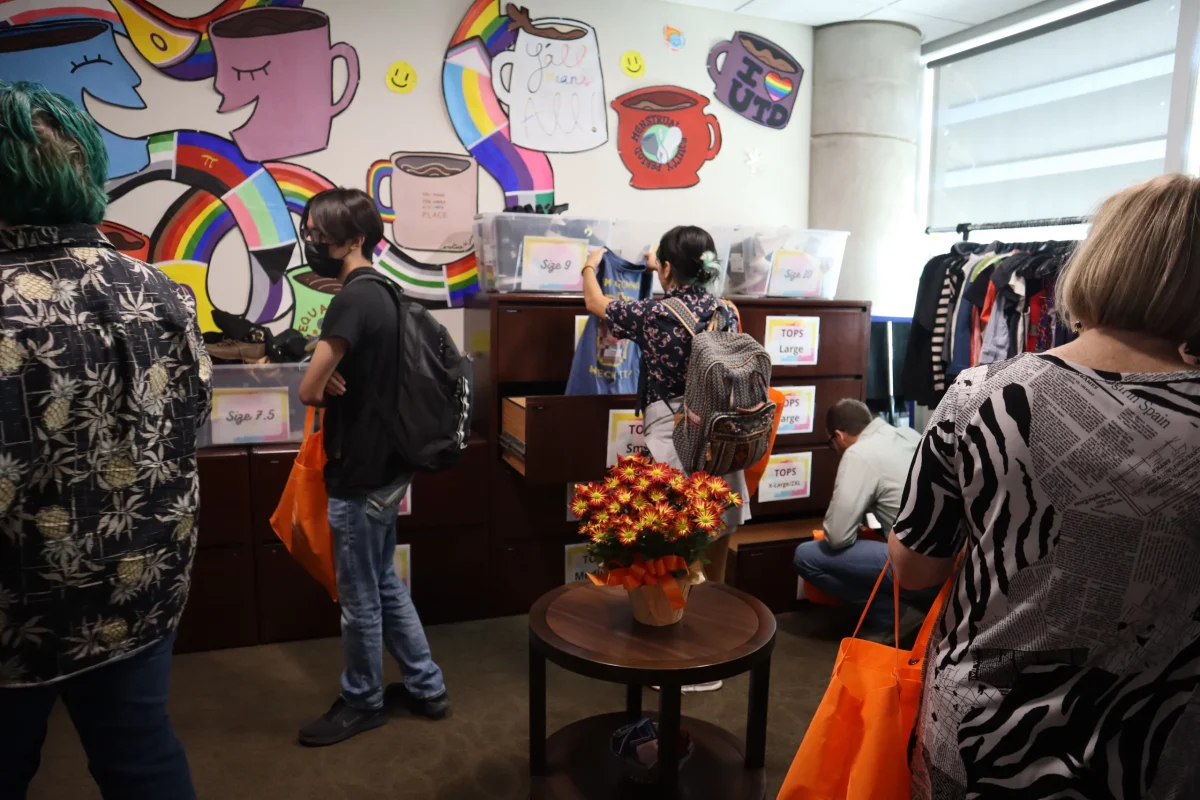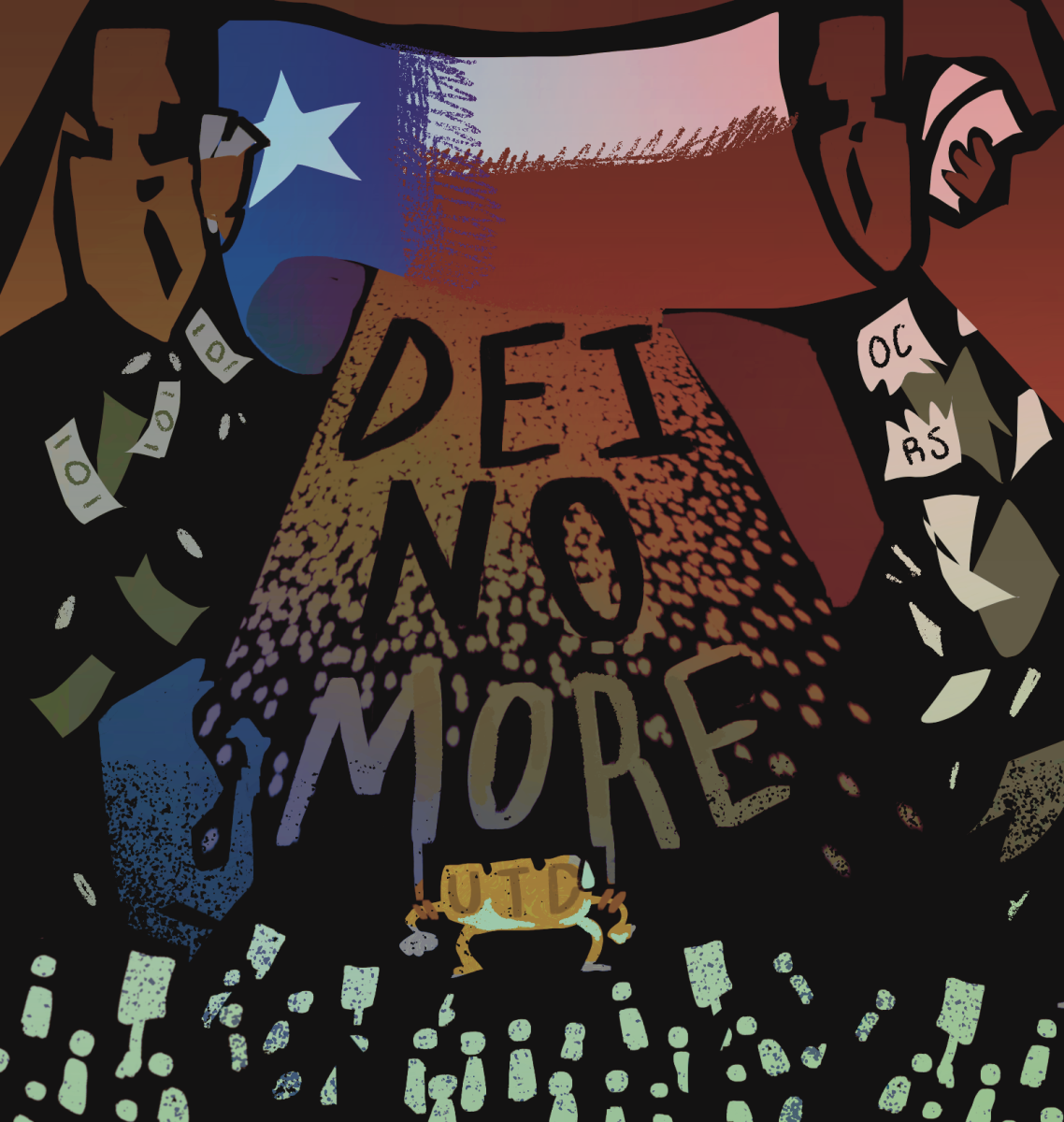After reevaluating its compliance with Texas’ DEI higher education ban, UTD will eliminate the newly-formed Office of Campus Resources and Support and 20 associated jobs by April 30.
President Richard Benson announced the elimination in an email to the student body April 9, making UTD the second school in the UT system to shut down offices created to fill the gap left by SB 17, which banned DEI offices at Texas universities effective Jan. 1. The first university was UT Austin, which announced April 2 that it closed its Division of Campus and Community Engagement and laid off 60 employees working in diversity, equity and inclusion-related positions, as reported by the Austin-American Statesman. Eliminated positions at UTD include those held by professional staff members in OCRS.
The AccessAbility Resource Center will continue to operate, providing disability and accessibility services to students under the Office of Academic Affairs. This resource for disabled students is federally protected under Section 504 of the Rehabilitation Act. Other centers under OCRS included the Galerstein Community Center, Comet Culture Center and the STEM Outreach and Education Center; it’s unclear if these centers’ services are being fully eliminated or if they’re moving to other university units.
Benson said in the email that employees affected by the elimination of the positions had been notified and student workers in OCRS will retain their jobs until the end of the semester. He also said the university’s Human Resources department will help the former OCRS staff members find future employment, which could include other open positions at the university. Benson told the Dallas Morning News in August that “no one will lose a job at UTD,” but “they might be in a different job.” In the April 9 email, he encouraged hiring managers to “give these experienced and talented individuals careful review when making their hiring decision.”
“I know that this decision will not be welcomed by many in our campus community,” Benson said in the email. “I remain committed to ensuring that UT Dallas is a supportive community focused on developing the knowledge, the research and the people that are vital to our future.”
The closures at UTD and UT come after Sen. Brandon Creighton, who authored SB 17, warned that lawmakers could freeze millions of dollars of funding to Texas universities and take legal action for noncompliance with the law. The Senate Committee on Higher Education will conduct a hearing in May for the UT system to prove its institutions are complying with SB 17. Legislators will scrutinize how institutions, including UTD, have ensured that there are no DEI offices or trainings and only merit-based hiring, which excludes diversity statements and consideration of race, sex, color, ethnicity or national origin in the hiring process.
“I am deeply concerned with the possibility that many institutions may choose to merely rename their offices or employee titles,” Creighton said in a letter to the UT System Chancellor and Board of Regents on March 26. “This letter should serve as notice that this practice is unacceptable.”
Sen. Creighton described SB 17 as one of the most restrictive DEI bans in the country, and it is among eight laws and one executive order nationwide that bans DEI at public colleges. When OCRS was established Jan. 1, it sought to “ensure that UTD [met] the needs of students” and aimed to “enhance student community-building and supporting employees and employee resource groups” in an SB 17-compliant way. In February, conservative watchdog organization Accuracy in Media featured UTD employees talking about DEI in a secretly-filmed compilation of videos. The report suggested that UTD, among other universities, were employing “creative” strategies to pursue DEI, including renaming offices or rebranding the Life Transition Closet.
The Texas NAACP called UTD’s re-compliance after Jan. 1 “unnecessary” in a statement to The Mercury. Texas NAACP previously released a joint statement with the Texas American Association of University Professors arguing against UT’s decision to terminate staff; UT President Jay Hartzell had reassured staff that their employment was not in jeopardy.
“The systematic elimination of important positions because of SB 17 and the Creighton letter is itself an act of First Amendment retaliation and likely discrimination,” President of Texas NAACP Gary Bledsoe said about UTD. “It will only serve to dumb down the university because it will possibly cause the loss of substantial research funds, impact its accreditation and standing in the national academic community and discourage talented students, faculty and staff from desiring to affiliate.”
Nandita Kumar, Student Government’s Diversity, Equity and Belonging Chair, said that her committee is encouraging student organizations to join a newly-formed campus coalition called Coalition of Agents for Student Advocacy. The goal of the coalition is to act as a campus-wide mouthpiece for DEI-related student concerns and provide resources and programming through student organizations which are exempt from SB 17. It is open for all organizations to join, regardless of their mission.
“We are creating a united front,” Kumar said. “I want to make it clear to the student body that this is something that’s going to require us to put in the work. For real change to happen, students across UTD are going to have to join these united efforts. If you generally support DEI on campus, you are welcome to join this [coalition].”
Kumar encourages students to speak directly to their legislators and elected representatives, emphasizing that the focus should be on lawmakers and not UTD administrators. Elected representatives for UTD include Mihaela Plesa of TX-HD 70, Angie Chen Button of TX-HD 112 and Nathan Johnson of Senate District 16. Texas Students for DEI, a statewide coalition with representatives from major Texas universities including Kumar from UTD, provides resources on how to contact state representatives, including mass email templates, on their Instagram page.
“We can be powerful, but we have to come together for that,” Kumar said. “Everyone has a role to play in this movement because we live in a world where these harmful draconian bills are being passed. And unfortunately that burden is going to fall on us. This is our chance to show them that we are seeing what they are doing.”











